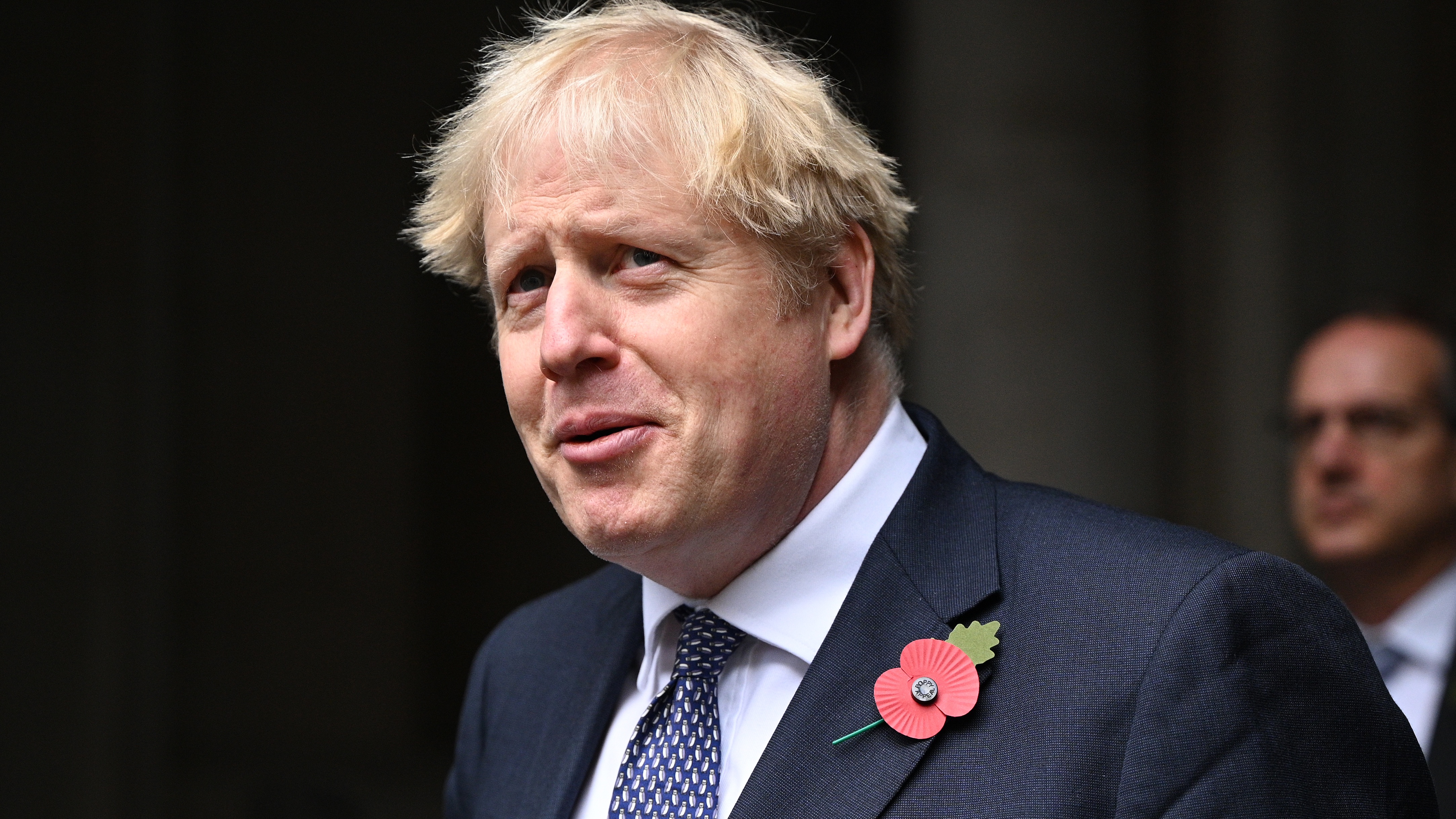Most Brits would agree to get Covid vaccine - if Boris Johnson goes first
Survey finds that almost half of total 74% who are willing to get the jab want politicians to act as guinea pigs

A free daily email with the biggest news stories of the day – and the best features from TheWeek.com
You are now subscribed
Your newsletter sign-up was successful
Three-quarters of Britons would say yes to getting a Covid-19 vaccine - but 40% want politicians to go first to ensure the jab is safe, a new poll reveals.
Amid growing hopes of an imminent rollout of the Pfizer-developed vaccine, just 7% of more than 1,000 people quizzed for the Daily Mail survey said they would not get innoculated against the new coronavirus “under any circumstances”.
Over-65s - the age group most at risk from the virus - were the most enthusiastic about the vaccine, with 86% saying they would get it, compared with 63% among 35- to 44-year-olds.
The Week
Escape your echo chamber. Get the facts behind the news, plus analysis from multiple perspectives.

Sign up for The Week's Free Newsletters
From our morning news briefing to a weekly Good News Newsletter, get the best of The Week delivered directly to your inbox.
From our morning news briefing to a weekly Good News Newsletter, get the best of The Week delivered directly to your inbox.
But despite the generally favourable response, a total of 54% believed that the development of a Covid vaccine has been rushed.
The UK government has ordered 40 million doses of the Pfizer version, which in Phase 3 tests has been found to be 90% effective in preventing the virus.
The vaccine trials breakthrough was rated by the survey respondents as being “more important” than Brexit, the fall of the Berlin Wall and the first man on the Moon, but that less important than votes for women or the development of vaccines such as tuberculosis jab.
The publication of the poll findings came as Health Secretary Matt Hancock unveiled plans for the NHS to be ready to deploy the vaccine “from any date from 1 December”.
A free daily email with the biggest news stories of the day – and the best features from TheWeek.com
Hancock told the House of Commons yesterday that “we do not yet know whether or when a vaccine is approved”, but added: “If this or any other vaccine is approved, we will be ready to begin a large-scale vaccination programme.”
According to BBC health editor Michelle Roberts, “if regulators are able to give the green light in the next few weeks, some people could get their jab before Christmas - a most welcome gift for those at highest risk of severe Covid-19 illness”.
But experts have warned that “it would be a colossal mistake to relax now and let the virus rip”, Roberts writes, adding that “until and unless mass vaccination can happen, society needs to use the other weapons at its disposal to fight the virus and stop the spread”.
Joe Evans is the world news editor at TheWeek.co.uk. He joined the team in 2019 and held roles including deputy news editor and acting news editor before moving into his current position in early 2021. He is a regular panellist on The Week Unwrapped podcast, discussing politics and foreign affairs.
Before joining The Week, he worked as a freelance journalist covering the UK and Ireland for German newspapers and magazines. A series of features on Brexit and the Irish border got him nominated for the Hostwriter Prize in 2019. Prior to settling down in London, he lived and worked in Cambodia, where he ran communications for a non-governmental organisation and worked as a journalist covering Southeast Asia. He has a master’s degree in journalism from City, University of London, and before that studied English Literature at the University of Manchester.
-
 Nuuk becomes ground zero for Greenland’s diplomatic straits
Nuuk becomes ground zero for Greenland’s diplomatic straitsIN THE SPOTLIGHT A flurry of new consular activity in the remote Danish protectorate shows how important Greenland has become to Europeans’ anxiety about American imperialism
-
 ‘This is something that happens all too often’
‘This is something that happens all too often’Instant Opinion Opinion, comment and editorials of the day
-
 House votes to end Trump’s Canada tariffs
House votes to end Trump’s Canada tariffsSpeed Read Six Republicans joined with Democrats to repeal the president’s tariffs
-
 A Nipah virus outbreak in India has brought back Covid-era surveillance
A Nipah virus outbreak in India has brought back Covid-era surveillanceUnder the radar The disease can spread through animals and humans
-
 A real head scratcher: how scabies returned to the UK
A real head scratcher: how scabies returned to the UKThe Explainer The ‘Victorian-era’ condition is on the rise in the UK, and experts aren’t sure why
-
 Trump HHS slashes advised child vaccinations
Trump HHS slashes advised child vaccinationsSpeed Read In a widely condemned move, the CDC will now recommend that children get vaccinated against 11 communicable diseases, not 17
-
 A fentanyl vaccine may be on the horizon
A fentanyl vaccine may be on the horizonUnder the radar Taking a serious jab at the opioid epidemic
-
 Health: Will Kennedy dismantle U.S. immunization policy?
Health: Will Kennedy dismantle U.S. immunization policy?Feature ‘America’s vaccine playbook is being rewritten by people who don’t believe in them’
-
 How dangerous is the ‘K’ strain super-flu?
How dangerous is the ‘K’ strain super-flu?The Explainer Surge in cases of new variant H3N2 flu in UK and around the world
-
 Vaccine critic quietly named CDC’s No. 2 official
Vaccine critic quietly named CDC’s No. 2 officialSpeed Read Dr. Ralph Abraham joins another prominent vaccine critic, HHS Secretary Robert F. Kennedy Jr.
-
 This flu season could be worse than usual
This flu season could be worse than usualIn the spotlight A new subvariant is infecting several countries